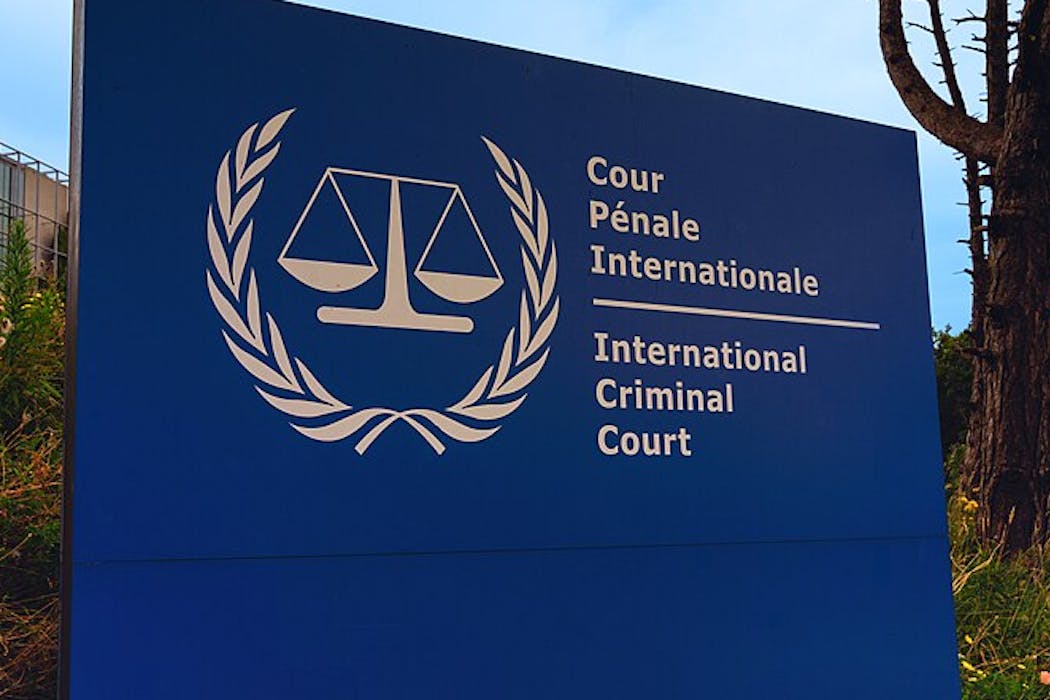
Canada has yet to officially throw its support behind the International Criminal Court (ICC), an institution it helped create, against targeted sanctions imposed on several prosecutors and judges by the United States earlier this year.
Read more: Why is Canada quiet on the International Criminal Court while recognizing Palestine?
Four key staff of the court — including Canadian judge Kimberly Prost — have been sanctioned by President Donald Trump’s administration because of their involvement in investigations related to alleged war crimes committed by American and Israeli officials.
Other allies, including France, Belgium and the European Union have publicly opposed the sanctions, issuing statements in support of the ICC.
Other states have also spoken out out against the sanctions, including Denmark, Finland, Estonia, the Netherlands, Norway, Senegal, Slovenia, Spain and Sweden.
Canada has publicly backed Prost, and has recently joined a number of states at the United Nations in supporting the overall work of the court. But Canadian officials have been silent about the American sanctions.
Sanctions fallout
The current wave of sanctions has forced the court to take extraordinary measures, such as paying staff ahead of time and changing email software to openDesk which was developed by the Germany-based Centre for Digital Sovereignty.
Despite these safety measures, the court may not be safe from further punishment. The Coalition for the International Criminal Court (CICC has speculated the U.S. government may impose further sanctions against the entire organization.
This would mean that any American company — including financial institutions — or even Canadian companies with subsidiaries in the U.S. that deal with the court may be subject to penalties and legal action.
Shielding businesses
Not all is lost, however. There are two legal remedies that could be be used to shield the ICC. Canada and the EU could amend key laws designed to protect companies from such actions, which could significantly aid in the operation of the court.
These include the 1985 Foreign Extra-Territorial Measures Act (FEMA) and its subsequent amendments in Canada, and in the EU, legislation known as the Extraterritorial Blocking Statute (EBS).
A FEMA amendment was passed in 1996 in response to the Helms-Burton Act in the U.S. that prohibited companies from trading or conducting business in Cuba.
FEMA shields Canadian businesses affected by the Helms-Burton Act and contains specific provisions to protect companies from retaliatory action by the U.S. Similarly, the EBS was passed in the European Parliament to shield European companies from American sanctions.
It was introduced initially as a result of the Helms-Burton Act, and then later revised when the U.S. withdrew from the Iran nuclear deal in 2018.
Canada and the EU could amend both FEMA and the EBS to ensure that Canadian and European companies are shielded from the effects of American sanctions and can continue to provide key services to the court.
In the case of the EU, most of the ICC’s contractual arrangements with entities like banks, insurers, service providers, technology providers and landlords are with European firms because the court is located in Europe — in The Hague, Netherlands.
Amending the EBS, therefore, would protect these companies from further American sanctions and would ensure they can still provide services to the ICC.
These legal remedies are a proportional response to the U.S. sanctions. They would allow all parties — the U.S. and the ICC’s supporters — to continue to negotiate instead of bringing international criminal justice to a grinding halt.
Ensuring the survival of the ICC
It’s important to note that including the need to shield businesses from U.S. sanctions in any amended legislation in both Canada and the EU legislation isn’t aimed at helping governments in either Cuba or Iran.
The goal is to protect Canadian and European companies from possible legal action or economic fallout if more sanctions are applied. Most importantly, the aim is to ensure that the ICC continues to operate with as little interruption as possible.
Sanctions may have significant effects on businesses, and what’s been identified as Trump’s penchant for “retributive diplomacy” may compel states — and businesses — to think twice before they act.
But FEMA and EBS provide appropriate countermeasures if and when broader U.S. sanctions on the entire ICC are introduced, or if Canadian and European companies unjustifiably suffer due to the imposition of new sanctions.
The ICC is the international organization with the ability to deliver justice and support victims. It’s the “court of last resort” that only gets involved when offending states are unwilling or unable to do so.
National security concerns in the U.S., Canada and the EU stem as much from the committing of mass atrocities as they do from other types of global crimes. That’s why it’s so important for states to support international criminal justice efforts by fulsomely supporting the ICC.
This article is republished from The Conversation, a nonprofit, independent news organization bringing you facts and trustworthy analysis to help you make sense of our complex world. It was written by: Laszlo Sarkany, Western University
Read more:
- ‘Digital sovereignty’: why the EU may be shifting from internet regulation to building homegrown tech
- How colonialism’s legacy continues to plague the International Criminal Court
- How can the International Criminal Court achieve justice for women?
Laszlo Sarkany does not work for, consult, own shares in or receive funding from any company or organisation that would benefit from this article, and has disclosed no relevant affiliations beyond their academic appointment.


 The Conversation
The Conversation
 Axios
Axios America News
America News NBC News
NBC News Reuters US Top
Reuters US Top Raw Story
Raw Story AlterNet
AlterNet @MSNBC Video
@MSNBC Video